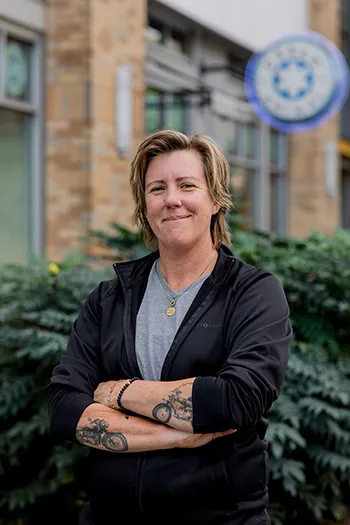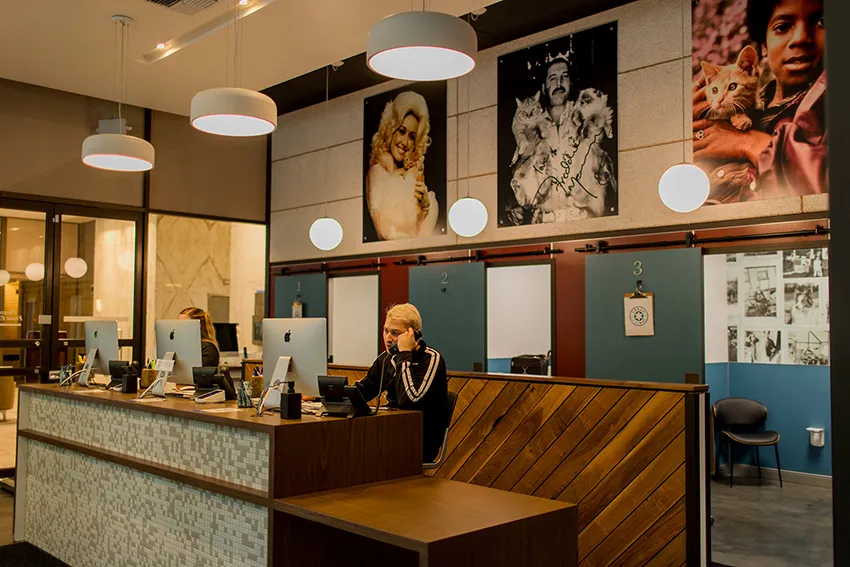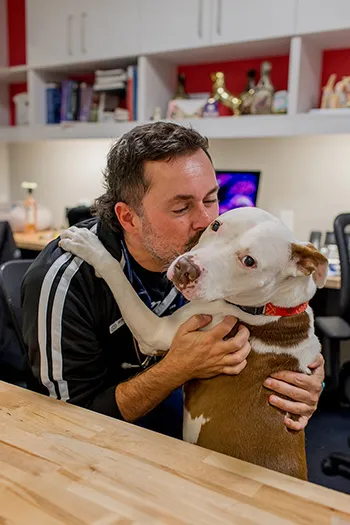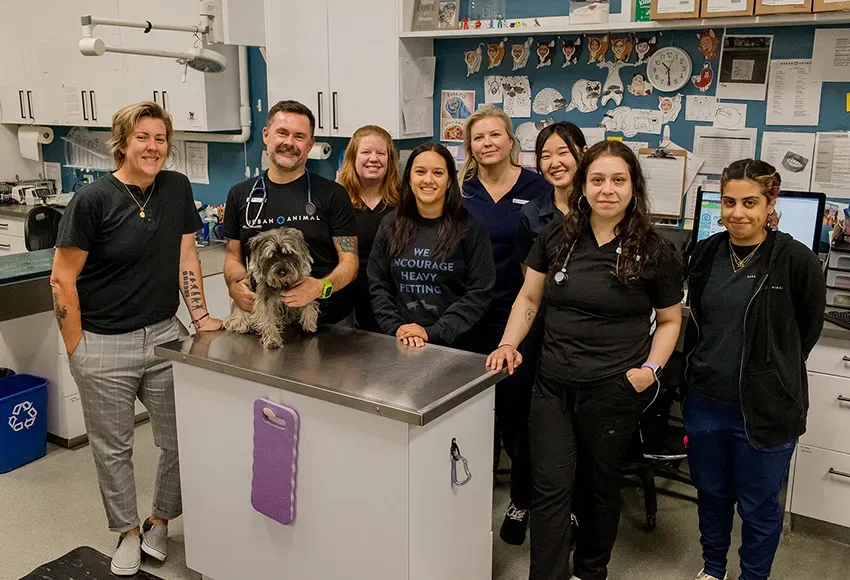The local veterinary chain Urban Animal has seen many changes in the 12 years since opening its doors in Capitol Hill. However, the biggest change is coming from within.
"We have formed a worker cooperative," CEO and founder Cherri Trusheim told the SGN.

In 2019, Washington State passed a law that created a new legal entity known as a legal cooperative association (LCA), which allows workers to obtain a portion of the business that employs them, effectively giving them a seat at the corporate table.
Right now, the workers at Urban Animal who take part in the program, from veterinarians to front-desk employees, collectively own 5% of the company. But that will soon change too.
"Over the next five to ten years, I will sell portions of Urban Animal on what I call 'familial terms,' so I sort of look at it as taking the entire staff as my business partner," Trusheim said.
She thinks of the process as similar to getting into the housing market. "You just need to get in, you need a piece, because then that equity grows. By giving them a small percentage of the company, then as we grow the company, that small percentage gains more and more value and gives them the ability to buy the company over time. So, eventually, it will be 100% worker-owned."

Now, workers pay a small fee to secure their spot in the cooperative. If they leave the business, they get the money back that they paid in. "It just holds your place," Trusheim explained.
The advantage to workers participating in the cooperative is that they now get a seat at the table. Two members will sit alongside Trusheim as board members for Urban Animal Industries. The employees get a say in how the company is run and, eventually, expanded.
"What I am ultimately trying to create is a space where veterinary professionals have a voice in what their jobs look like, because right now, corporate America is just gobbling up private equity," Trusheim said. "You don't go into veterinary professions to make money. We all should make money and have livable wages, but it's not an industry that makes sense to have people focused on the bottom line. I want to change that, and this is how we start to do that."

Veterinarians in crisis
Trusheim hopes other practices will follow Urban Animal's lead to create a better work environment for their employees. A study by the BBC found that the veterinary industry is one of the worst when it comes to mental health. Trusheim is aware of this crisis and believes elevating the voices of the vets who work at her practice is the first step in combating it.
"We're trying to make an environment that can support our people," she said. "A lot of us with trauma are drawn to work with animals. We all know the healing bond you can have with animals." She sees a combination of sensitive people who come to the field to care for and help animals and a growing number of pet owners who see their dogs and cats as surrogate children as adding to this crisis.
"When we make dogs our children – which we do, and there's no judgment around that – ...we almost always outlive them," Trusheim said. "Outliving your child is not something within us that feels right, but it's going to happen if your child is a dog."
While veterinarians experience a similar emotional trauma to pediatric doctors, especially when helping their clients say goodbye, they don't receive the same benefits, support, or income. "It is an emotionally exhausting field," Trusheim said. "It's also not a lucrative field. If we're motivated to keep it affordable and accessible, which we are at Urban, those things are like opposing magnets. You want people to make more money doing the work, but you also want to keep it affordable. It's a challenge."
Everyone at Urban Animal works to make sure the Seattle community receives quality and affordable vet care. Trusheim wants to guarantee that her staff gets paid a good wage, but she does not want that to come at the expense of the community. In 2023, the company introduced the ACT subsidy, an additional and optional fee that helps it continue to provide care to low-income clients.
"As long as animals are killed at shelters, vet care should not be a luxury," Trusheim said she believes. "That human-animal bond shouldn't just be for the wealthy or the people with means."
Trusheim's dedication to fostering the lives of humans and animals in the Seattle community has kept her from selling out.
"Corporate America would love to buy Urban Animal. I get solicitations every day. It would be a windfall to me, but then what?" Trusheim asked. "It's not anything I'd be proud of. Even outside the veterinary industry, that wealth gap is growing in the wrong direction. It feels like the end of capitalism's life span. Those who can do something different, like myself, need to.
"It's not just about my industry, it's about our economic industry in general. We need to stop looking at things from a scarcity narrative. We can share. People should be a part of the success."


